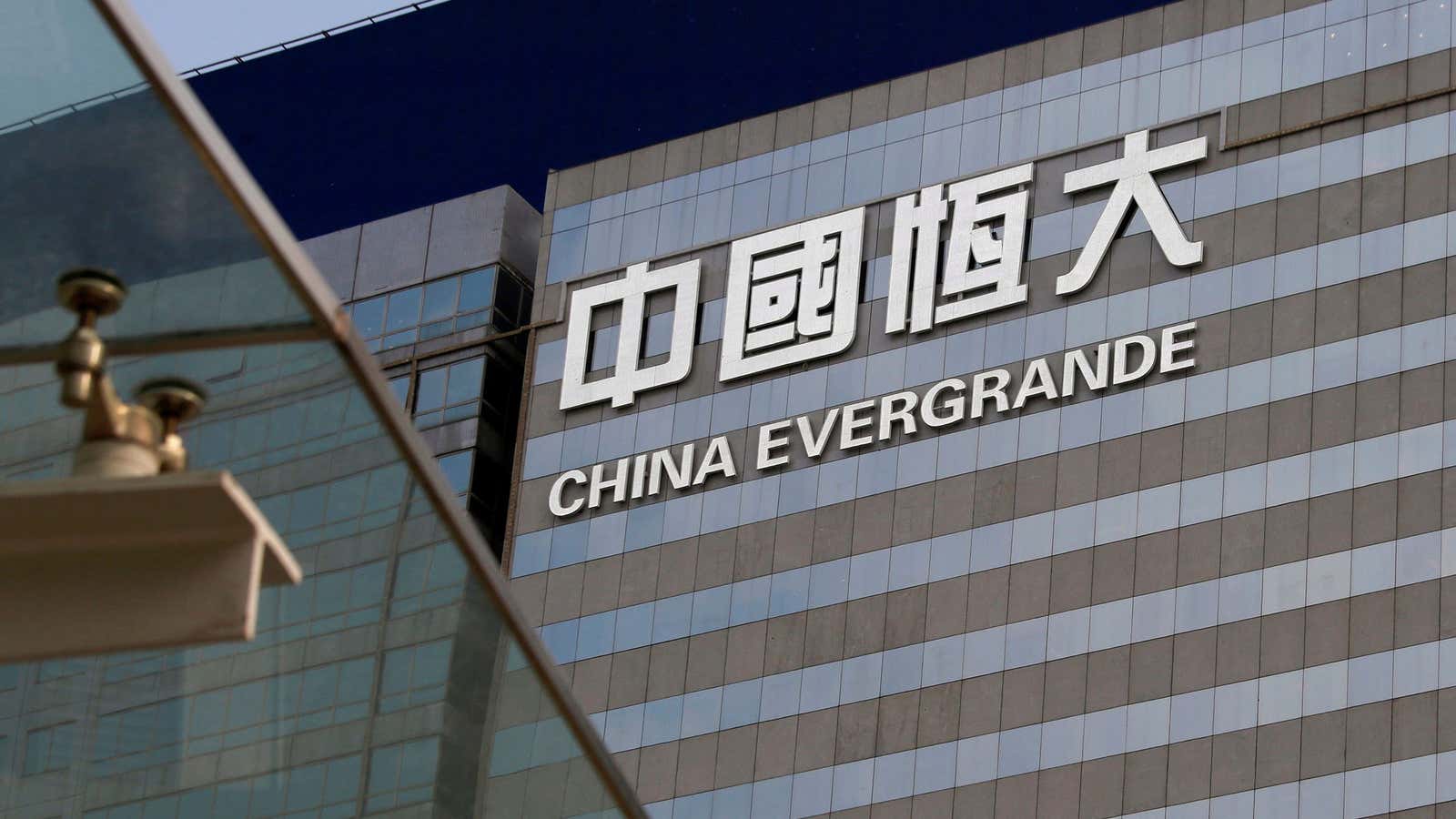China’s electric car market continues to grow, despite an overall slowdown in car sales. That’s drawn a somewhat unusual competitor into the field: real estate giant Evergrande Group, the country’s second-largest property developer by sales.
On Friday (March 15), the company’s Hong Kong-listed subsidiary announced it had acquired a 70% stake (pdf) in auto parts maker TeT Drive Technology Co. for 500 million yuan ($75 million). This follows a billion dollar acquisition this year alone of a carmaker and a battery manufacturer by the subsidiary, Evergrande Health Industry Group.
The purchases are Evergrande’s latest attempt to diversify its business amid a slowing real estate market in China. But they’re also a sign of the health of China’s electric car industry. Last year, the country sold 1.2 million “new energy vehicles,” including plug-in hybrid vehicles and battery electric vehicles, accounting for more than half of the world’s total sales. 2018’s electric car sales are expected to double by 2020. And there are close to 400 electric vehicle makers (paywall) in China as of last year, with a slew of startups looking to join the production line.
But it isn’t an easy route despite the market boom. China strictly regulates who can make cars, making it challenging for newcomers to set up their own manufacturing production lines. Evergrande Health was able to get a production license through its acquisition in mid-January (pdf) of Swedish-based carmaker NEVS for $930 million. Later that month, it purchased Shanghai-based battery maker Cenat for $160 million. The company has since founded Evergrande NEVS, a Hong Kong-based group specializing in automobile research, retail, and car rentals with a capital of $2 billion (link in Chinese).
The series of moves follows Evergrande’s fallout with US-based high-end electric car maker Faraday Future (FF). Evergrande agreed in 2017 to invest $2 billion in the ailing carmaker. But the companies became embroiled in legal disputes over ownership and payments last year. Both sides agreed to drop all litigation at the end of last year, with the original deal restructured to give Evergrande 32% ownership of Faraday and control over its future moves in China, according to the Verge.
By all appearances, the real estate firm has everything it needs to make it work in the electric car business. On Saturday, Evergrande NEVS said that the firm’s first electric car will go into production in June (link in Chinese), although details of the model and production volume remain unclear. The company is up against major competition from foreign EV carmakers like Tesla, which plans to start manufacturing cars in its Shanghai factory later this year, and Chinese challengers like New York-listed NIO. Traditional carmakers like BYD and BJEV, two leading firms in electric car sales, are also in the mix.
Phillip Zhong, a Hong Kong-based property market analyst with financial services firm Morningstar, says it makes sense for Evergrande to diversify, give that in China the “peak for physical construction has already passed.” But going into carmaking will be a leap. By comparison, Chinese real estate firms Vanke and China Resources are venturing into sectors more related to their expertise, like logistics and commercial buildings, Zhong says.
“What Evergrande is doing here—there’s a lot of risks,” he adds. “No one really knows how that’s going to turn out.”
Evergrande’s previous diversification efforts include a 2013 foray into consumer goods, with the manufacture and sale of water bottles, baby formula, and cooking oil. It ended up selling those businesses in 2016 (link in Chinese).
Looking for more in-depth coverage? Sign up to become a member and read more in-depth coverage of China’s electric-car boom in our field guide.
